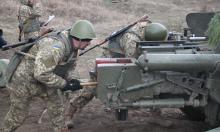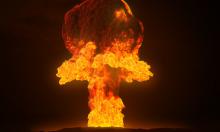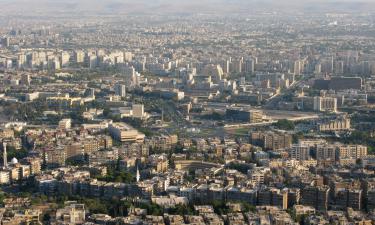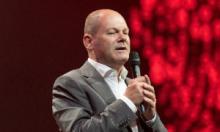France gathers world leaders for Bastille Day celebrations
The leaders of Syria and Israel, countries with a bitter enmity, as well as the Palestinian and Lebanese presidents together marked France's Bastille Day on Monday in a diplomatic coup for French President Nicolas Sarkozy.
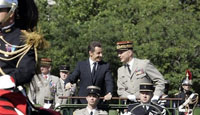
Other leaders from Europe, the Middle East and North Africa, and U.N. Secretary-General Ban Ki-moon, also attended the traditional Bastille Day parade where troops in their finery marched down the tree-lined Champs-Elysees, and jets trailing smoke of red, white and blue roared overhead.
Syrian President Bashar Assad, Israeli Prime Minister Ehud Olmert and the more than a dozen other leaders stood on the official grandstand, looking up the Champs-Elysees toward the Arch of Triumph. The leaders had stayed over following a summit Sunday that launched an unprecedented Union for the Mediterranean, a brainchild of Sarkozy's aimed at securing peace across the restive region.
Forty-three nations, including Israel and Arab states, agreed at the summit to work for a Middle East free of weapons of mass destruction in launching the Mediterranean union.
Deep divisions still slice through the region and its population of 800 million people, and surfaced during Sunday's summit, highlighting how hard it will be to parlay the meeting's good will and words into real progress.
Assad refused to shake Olmert's hand, and Morocco's king snubbed the meeting attended by the president of rival Algeria. It was also unclear how the countries would enforce their pledge to "pursue a mutually and effectively verifiable Middle East Zone free of weapons of mass destruction."
Still, Sarkozy reveled at having brought so many leaders to the same table for the first time. His office brushed off critics' complaints that Assad should not have been allowed to stay for Monday's military ceremonies because of Syrian human rights failings and suspicions that Syria was implicated in a 1983 bombing in Lebanon that killed 58 French soldiers.
Campaign group Reporters Without Borders called Assad an "enemy of press freedom" whose government is guilty of "ruthless censorship."
Assad, in dark glasses, showed no emotion as French actor Kad Merad read aloud an extract from the Universal Declaration of Human Rights in front of the grandstand where the leaders were seated.
Subscribe to Pravda.Ru Telegram channel, Facebook, RSS!
